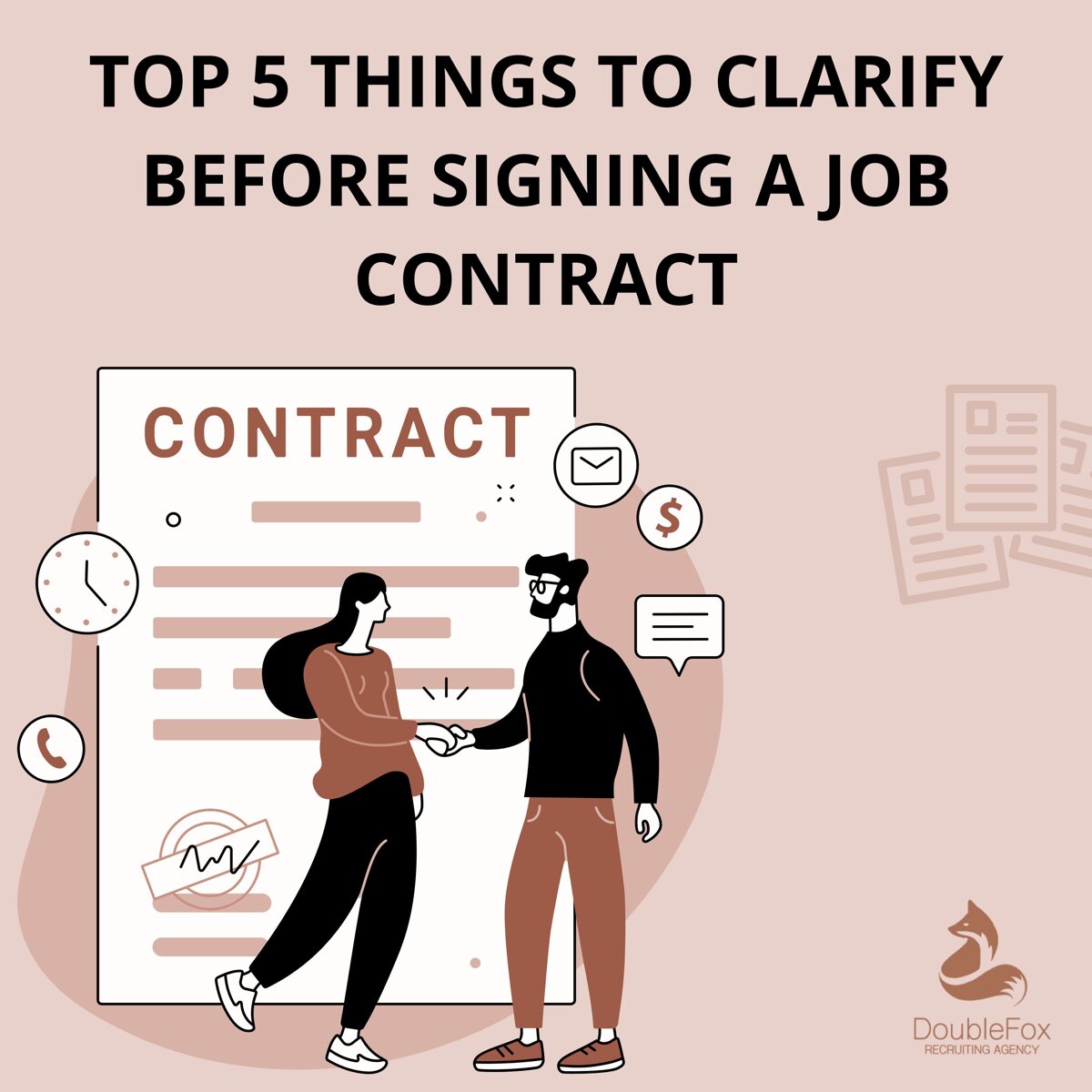Starting a new job is an exciting milestone, but before you officially join a company, there’s an essential step you must not overlook: signing the labor contract. This document is more than just a formality—it’s a legally binding agreement that outlines your rights, responsibilities, and the terms of your employment. Overlooking critical details can lead to misunderstandings, disputes, or even exploitation down the line.
Whether you’re a recent graduate entering the workforce or a seasoned professional switching jobs, understanding the things to note before signing a labor contract is crucial. This comprehensive guide will walk you through the key elements to review, common pitfalls to avoid, and expert tips to ensure you’re making an informed decision. By the end, you’ll be equipped to protect your interests and start your new role with confidence.
What Is a Labor Contract?

A labor contract, also known as an employment agreement, is a written document that defines the relationship between employer and employee. It typically covers job responsibilities, compensation, benefits, working hours, termination conditions, and other important terms. Signing a labor contract means you agree to abide by its terms, so it’s vital to understand every clause before putting pen to paper.
Key Things to Note Before Signing a Labor Contract
1. Verify Personal and Company Information
Before anything else, ensure that your name, address, and other personal details are accurately stated. Likewise, check that the company’s legal name, address, and representative’s name are correct. Errors here can cause legal complications later.
2. Job Title and Description
- Clarity is Key: The contract should clearly state your job title and a detailed description of your duties.
- Scope of Work: Watch out for vague terms like “other duties as assigned,” which could open the door to unreasonable demands.
3. Compensation and Benefits
- Salary: Confirm the amount, payment frequency, and method (bank transfer, cash, etc.).
- Bonuses and Incentives: Are there performance bonuses, commissions, or profit-sharing plans? Make sure these are specified.
- Benefits: Review health insurance, retirement plans, paid leave (sick, vacation, parental), and other perks.
Comparison Table: Common Compensation Elements
| Element | What to Check For | Why It Matters |
|---|---|---|
| Base Salary | Amount, payment schedule | Ensures fair and timely pay |
| Overtime Pay | Rate, eligibility | Protects against unpaid overtime |
| Bonuses | Criteria, timing, calculation method | Avoids disputes on entitlements |
| Allowances | Types (housing, travel, meals), amounts | Adds to total compensation |
| Benefits | Health, dental, retirement, insurance | Impacts long-term security |
4. Working Hours and Overtime
- Standard Hours: Confirm your daily and weekly working hours.
- Overtime Policy: Are you expected to work overtime? What is the compensation rate?
- Breaks and Rest Days: Ensure these are in line with local labor laws.
5. Probation Period
- Duration: How long is the probation period?
- Evaluation Criteria: What standards will you be assessed against?
- Termination During Probation: What notice is required from both sides?
6. Termination and Notice Period
- Grounds for Termination: Understand the reasons for which you or the employer can end the contract.
- Notice Requirements: How much notice must be given? Is payment in lieu of notice allowed?
- Severance Pay: Are you entitled to compensation upon termination?
7. Non-Compete and Confidentiality Clauses
- Non-Compete: Does the contract restrict you from working for competitors after leaving?
- Confidentiality: What information are you required to keep secret, and for how long?
- Reasonableness: Ensure these clauses are not overly restrictive or vague.
8. Intellectual Property Rights
- Ownership: Who owns the work or inventions you create during employment?
- Scope: Does this apply only to work-related creations or anything developed during your tenure?
9. Dispute Resolution
- Process: How will disputes be handled? (e.g., mediation, arbitration, court)
- Jurisdiction: Which country or state’s laws apply?
10. Amendments and Additional Agreements
- Written Amendments: Ensure any changes to the contract must be made in writing and signed by both parties.
- Attachments: Review all referenced documents or policies.
Red Flags to Watch Out For
- Blank Spaces: Never sign a contract with blank sections that could be filled in later.
- Verbal Promises: Only trust what is written; verbal assurances are hard to enforce.
- Unilateral Changes: Beware of clauses allowing the employer to change terms without your consent.
- Ambiguity: Vague language can be interpreted against you in a dispute.
Practical Steps Before Signing
- Read the Contract Carefully: Don’t rush. Take your time to read every clause.
- Ask Questions: If anything is unclear, seek clarification from HR or management.
- Seek Legal Advice: Consider consulting a labor lawyer, especially for complex or high-stakes roles.
- Negotiate: Don’t be afraid to negotiate terms that are unfavorable or unclear.
- Get a Copy: Ensure you receive a signed copy for your records.
FAQ
What should I do if I don’t understand a clause in the labor contract?
Always ask for clarification from HR or your prospective employer. If you’re still unsure, consult a legal professional. Never sign something you don’t fully understand.
Can I negotiate the terms of a labor contract?
Yes, most employers expect some negotiation, especially regarding salary, benefits, and working conditions. Be polite but assertive in your requests.
Is a verbal agreement legally binding?
Verbal agreements can be binding in some jurisdictions, but they are much harder to prove and enforce. Always insist on having all terms in writing.
What if the employer refuses to give me a copy of the signed contract?
This is a major red flag. You are entitled to a copy of any contract you sign. Refusal may indicate the employer is not trustworthy.
Can an employer change the contract after I’ve signed it?
Generally, changes require your consent and a written amendment signed by both parties. Beware of clauses that allow unilateral changes by the employer.
Additional Tips for International Workers

If you’re signing a labor contract in a foreign country, pay special attention to:
- Visa and Work Permit Requirements: Ensure your contract complies with local immigration laws.
- Currency of Payment: Confirm the currency in which you’ll be paid.
- Cultural Norms: Understand local workplace customs and expectations.
Conclusion
Signing a labor contract is a significant step in your career journey. By carefully reviewing the things to note before signing a labor contract, you protect your rights and set the stage for a positive working relationship. Remember to verify all details, clarify uncertainties, and never feel pressured to sign on the spot. Taking these precautions ensures you start your new job on the right foot, with clear expectations and legal protection.
Key Takeaway:
A labor contract is more than just paperwork—it’s your safeguard in the workplace. Take the time to understand, negotiate, and secure terms that reflect your value and protect your interests.
Optional Product Section: Recommended Resources for Employees
- Legal Consultation Services: Seek advice from employment lawyers for contract reviews.
- Online Contract Templates: Use reputable sources for sample contracts and checklists.
- Employee Rights Guides: Download guides from government labor departments or trusted NGOs.
- HR Advisory Firms: Get professional support for negotiation and dispute resolution.
By keeping these things in mind before signing a labor contract, you’ll be well-prepared to make informed decisions and embark on your new role with confidence and peace of mind.

